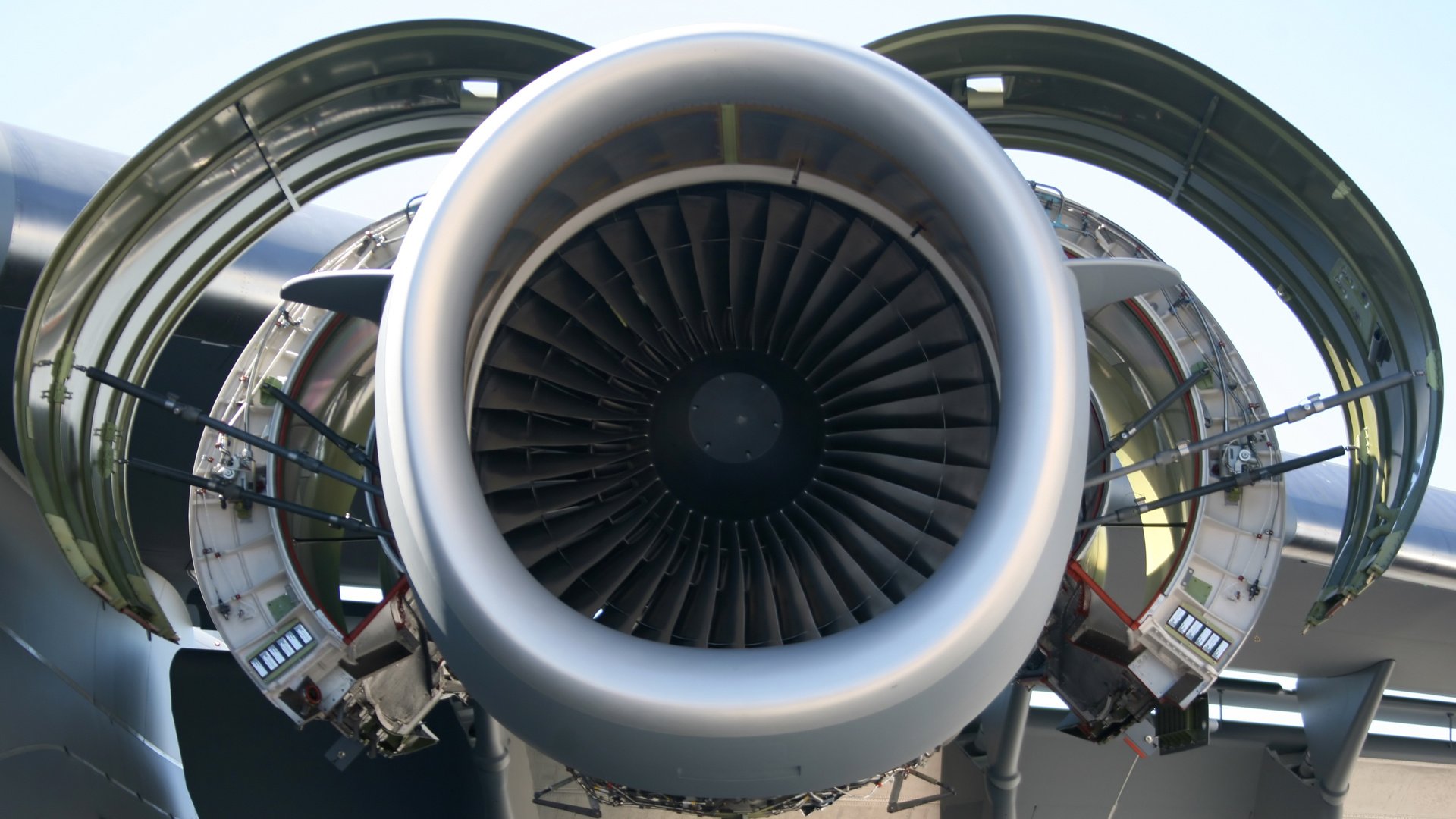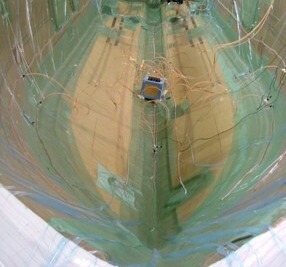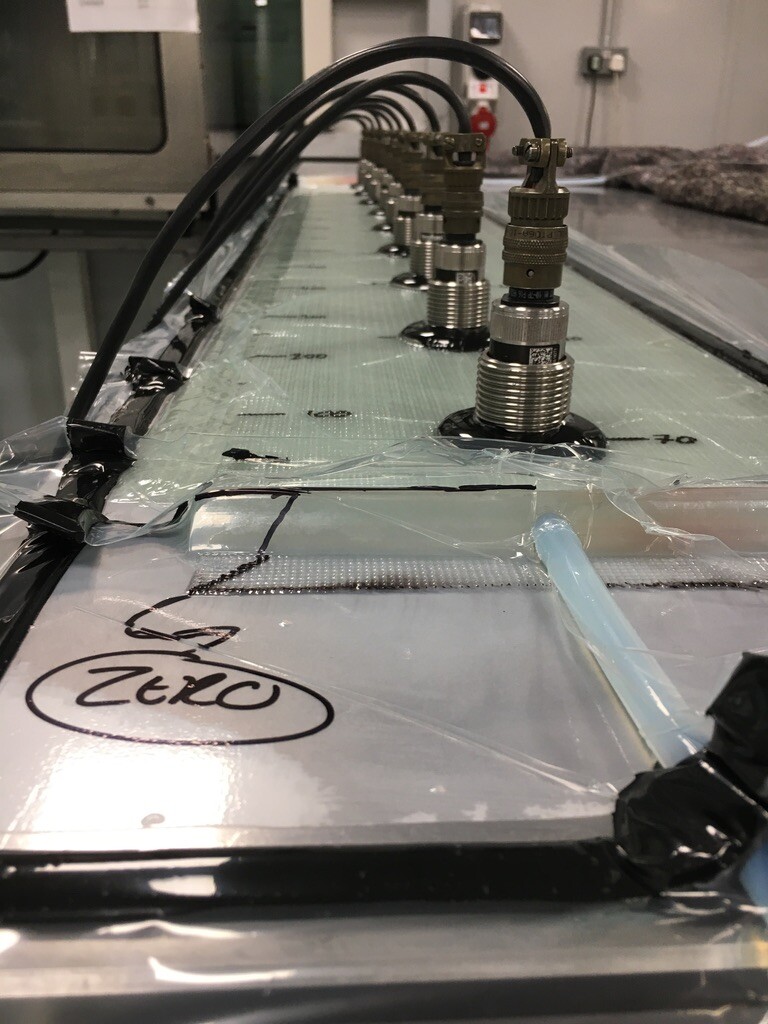FOR THOSE WHO THINK IT CAN'T BE DONE.
This is How You Achieve Quality at Rate
In the race to fulfil demand and reduce backlogs, aerospace manufacturers are turning away from slow, wasteful and capital intensive pre-preg processes. The more nimble and efficient RTM (Resin Transfer Moulding) & Direct Infusion techniques are now at the forefront. Here’s why...
In the fast-paced and rigorously demanding realm of aerospace manufacturing, the industry is faced with significant challenges as it strides into the future. The primary hurdle is the production of high-quality aerospace components that not only meet but surpass the increasingly stringent standards of performance, durability, and safety. This challenge is magnified by the accelerating pace of demand from both commercial airlines and defence sectors, each pushing for more sophisticated and reliable components with quicker turnaround times.
Adding to the complexity is the environmental impact of manufacturing processes. As global attention shifts towards sustainability, aerospace manufacturers are under significant pressure to reduce their carbon footprints, manage waste more effectively, and optimise energy consumption—all without compromising the high quality and precision that aerospace parts require.
Economic pressures further complicate the landscape. The high cost of raw materials, the need for specialised labour, and the significant capital investment in manufacturing infrastructure pose substantial barriers to scalability and efficiency. These economic factors are coupled with the technological challenges of integrating the latest advancements in materials science and engineering, ensuring that every component can withstand extreme conditions and rigorous use.
Why Infusion Over Pre-Preg?
Traditionally, the aerospace industry has favoured pre-preg materials for their quality. However, these materials come with inherent limitations such as high costs, extensive storage requirements, and labour-intensive processes that escalate operational expenses and restrict scalability.
Challenges with Pre-Preg:
Equipment Requirements: The use of pre-preg materials often necessitates autoclave curing, requiring substantial investment in specialised equipment.
Limited Scalability: The intricate handling and laying up processes restrict the scalability of pre-preg, making it less adaptable for meeting increased demands.
Extended Curing Times: Pre-preg materials typically require prolonged curing times in autoclaves, leading to bottlenecks in production cycles and reduced manufacturing throughput.
Labour Intensity: The process of laying up pre-preg materials is labour-intensive and requires a high level of skill from workers, limiting production speed and increasing costs due to the need for skilled labour.
Storage Limitations: Pre-preg materials must be stored in refrigerated conditions to prevent premature curing, which imposes additional logistics and storage costs.
Limited Shelf Life: Pre-preg material chemicals have a fixed shelf life, beyond which their performance characteristics may degrade, leading to potential waste and increased operational costs if the materials are not utilised promptly.
Inflexibility in Design Changes: Pre-preg layup schedules and mould designs are difficult and costly to alter, inhibiting responsiveness to new design requirements or improvements.
Why Choose RTM & Direct Infusion?
Dedicated to our mantra ‘there’s always a better way,’ we have invested over 2 decades developing Resin Transfer Moulding (RTM) and Direct Infusion. These technologies exemplify innovation in manufacturing, where precision engineering ensures uniform resin distribution—critical for achieving the highest structural integrity with minimal voids.
Our processes ensure components consistently meet rigorous aerospace standards, thereby maintaining quality at an increased production rate. CIJECT further accelerates the production process without compromising on quality, optimising infusion for faster cycle times and higher throughput.
“CIJECT equipment plays a pivotal role in aerospace manufacture, giving you complete control and verification over the entire manufacturing process.” Tim Searle, R&D Director
Key Benefits of RTM & Direct Infusion with CIJECT
Consistent High Quality
CIJECT ensures each component consistently meets or exceeds stringent aerospace standards, thanks to its precise control over resin preparation, mixing, injection, distribution and curing processes. This level of control ensures every part follows the same repeatable process, maintaining uniformity in quality and performance.
Cost Efficiency
One of the standout benefits of using CIJECT equipment is its ability to reduce material waste. The system’s precise infusion techniques ensure that only the necessary amount of resin
is used, minimising excess. This not only reduces the cost of materials but also lessens the environmental impact associated with waste disposal. Additionally, the reduced need for rework and lower scrap rates contribute to overall cost savings, making the manufacturing process more economical and sustainable.
Quality at Rate
CIJECT allows for acceleration of production timelines without sacrificing quality output. By integrating advanced automation and control systems, the equipment maintains a rapid production pace, enabling manufacturers to meet high demand without delays. Efficiency is achieved through streamlined processes, with each step from resin preparation to component curing optimised for speed and precision.
Scalability & Flexibility
CIJECT equipment is highly adaptable and customisable, capable of handling a wide range of component sizes and complexities. This adaptability allows for manufacture of small intricate parts to large structural components, be it RTM or Infusion. Easily scale your production up or down, based on demand, without the need for significant adjustments in the production setup. New product designs can be accommodated quickly and efficiently.
Pushing Boundaries
Composite Integration is enabling leading aerospace manufacturers to pioneer advancements in the industry, continuously driving innovation and efficiency.
Our partnership with Safran has been crucial in optimising low-cost infusion technologies, establishing key process parameters that now guide our high- performance infusion methods.
Additionally, as associate members of the National Composites Centre, we are actively involved in the Airbus ‘Wing of Tomorrow’ programme, contributing to the development of innovative wing designs for the next generation of fuel-efficient and electric aircraft.
Understanding Your Challenges: How we can help
Improved Processes: Leverage our deep industry knowledge and technical expertise through our process consultancy services. We help clients optimise their manufacturing processes from initial design to final production.
Optimised Quality & Efficiency: Our dedicated R&D team continuously refine and enhance the capabilities of our Direct Infusion technology, to stay at the forefront of composite manufacturing.
Rapid Prototyping Services: We offer prototyping services that enable quick turnaround times for test components, crucial for iterative design processes, allowing for fast-paced developments and improvements.
Reduced CAPEX & OPEX: Benefit from cutting-edge equipment that decreases both.
Significant Weight Savings: Achieve designs that enhance fuel efficiency and performance.
Increased Component Durability: Extend the lifespan of components and reduce ongoing maintenance needs.
On-Site Customisation & Expert Setup: Ensure seamless integration of our machinery into your production lines.
Comprehensive Training and Ongoing Assistance: Equip your team with the skills
to maximise the benefits of RTM & Direct Infusion technology, supported by continuous expert guidance.
“Others may provide the equipment; we go even further. From guidance throughout your project, to onsite installation, we help you develop quality processes and parts at scale” David Raynor, Sales Director





